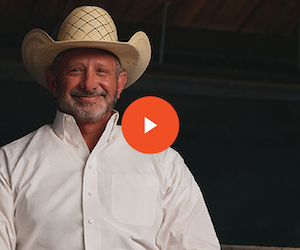PRESENTED BY

BY JOHN BRESNAHAN, ANNA PALMER, JAKE SHERMAN AND HEATHER CAYGLE
WITH MAX COHEN AND CHRISTIAN HALL
THE TOP
Happy Thursday morning.
House Democrats came into this week expecting quick passage of a domestic terrorism bill focused on the growing threat from white supremacists.
Enter Rep. Cori Bush (D-Mo.) and the Squad. The bill should’ve been an easy win for the Democratic House. But now, it may be shelved for good.
H.R. 350, the Domestic Terrorism Prevention Act, has 207 co-sponsors (including three Republicans) and passed the House by voice vote during the last Congress. The bill would create domestic terrorism offices within the Department of Homeland Security, Department of Justice and the Federal Bureau of Investigation.
Earlier this week, senior House Democrats said they planned to work with the Department of Justice to “tweak” the bill. Democratic leaders said a small language revision was needed to get Bush and outside groups who are opposed to the measure – such as the ACLU and the Council on American-Islamic Relations – back on board. But after talking to Squad members, it’s clear that this bill is not going to be easy to pass.
“It’s not happening… It’s a horrible bill,” Rep. Ilhan Omar (D-Minn.) told us.
“I need a clearer definition on how we’re defining domestic terrorists and we need a longer conversation around is more money needed to support this?” Rep. Jamaal Bowman (D-N.Y.) added.
Supporters of the bill were adamant the legislation created no new statutes and no new surveillance lists, despite claims from opponents. A major frustration among the bill’s backers is that the progressive complaints lack specificity and were raised too late in the process to actually address them without delaying the vote.
Senior Democrats had some awareness of potential problems with Bush going back to the House Judiciary Committee markup in early April. Bush was asked to “take a walk” instead of voting no on the bill in committee, multiple sources told us. Democratic leaders didn’t expect Bush to rally enough support from colleagues and outside groups to threaten the bill’s passage on the floor, however.
“We want to make sure that in the midterms, and in the midst of new districts, we aren’t politicizing this thing for opportunistic ends,” said Rep. André Carson (D-Ind.), a supporter of this legislation, when we asked if he’d spoken to Bush about her opposition.
But Bush’s effort left several Democrats fuming, including members of the Congressional Black Caucus. These members have said the legislation is needed urgently to respond to a spate of bomb threats at historically Black colleges and universities.
“I believe we need to move it along. When we see problems we need to solve them. We need to do that, and not find excuses not to,” said Rep. Alma Adams (D-N.C.), who has led the effort to condemn the HBCU bomb threats.
| → | Yet there’s also a broader undercurrent at play here. It’s illustrative of both the evolving dynamics within the Democratic Caucus and the CBC specifically. And it’s another example of the ongoing tension between some members of the Squad and the CBC. |
CBC members have long been concerned that progressive challengers backed by prominent liberal groups have singled out Black incumbents as their targets. Bush herself did this in 2020 defeating Rep. Lacy Clay (D-Mo.), a popular CBC member whose father helped found the group.
Those tensions have persisted. Senior CBC members were upset that Squad members who belong to the caucus didn’t come to a special swearing-in for Rep. Shontel Brown (D-Ohio) after she won a special election in November, for instance.
Bush’s relationship with the CBC, in particular, was described by several CBC members as “strained,” “complicated” and “non-existent.”
While several CBC members said they wanted to have a relationship with Bush following her ouster of Clay, they also complained the first-term lawmaker makes no effort to attend CBC meetings or interact with the broader group. None of these Democrats wanted to speak on the record, requesting anonymity to explain internal CBC dynamics.
This episode, however, speaks to some of the challenges facing the CBC in a changing Congress. Some younger Democrats see themselves more as individual players than members of the group. And the once muted divisions along generational, geographical and even ideological lines now are on public display.
Yet the power of the CBC – and what’s made it so important inside the larger House Democratic Caucus – is its unity. Being able to swing 50-plus votes among 221 often-fractious House Democrats gives the CBC more power than any other voting bloc.
Several Democrats – some members of the CBC, some not – privately criticized Bush, saying she’s more interested in promoting her own priorities and brand than working together with other Democrats.
“I mean, we’re part of the CBC,” Bush responded when asked about her relationship with the caucus.
But Bush explains her standing within the caucus differently, telling us she still has the mentality of an activist despite serving in Congress. Bush, a prominent Black Lives Matter figure, led the protests in Ferguson, Mo., after a white police officer shot and killed unarmed Black teenager Michael Brown in 2014.
Bush garnered national attention last year when she bucked Democratic leaders and led a multi-day protest to oppose the Biden administration’s decision not to extend the federal eviction moratorium. Bush slept on the Capitol steps as part of her stand against the administration. The Biden administration bowed to the pressure campaign, extending the eviction moratorium only to have the Supreme Court strike down the extension a few weeks later.
“I see things differently than the folks that were not out there [in the BLM movement],” Bush told us Wednesday evening. “So I think that that makes a difference.”
PRESENTED BY FACEBOOK
We build tools that give you control and help keep you safe
Real connection can only happen on safe platforms. So we build tools to protect our communities.
Privacy Checkup, where you can manage your privacy settings and control who sees what you share
Industry-leading AI that detects and reacts to harmful content faster than ever
CHIPS NEWS
Schumer, McConnell agree on China tech bill timeline
Senate Majority Leader Chuck Scumer and Minority Leader Mitch McConnell have agreed on a pathway to begin an official House-Senate negotiation on the Bipartisan Innovation Act, a massive package to ensure U.S. technological competitiveness with China.
Late last night, Schumer announced on the Senate floor that he and McConnell agreed on 28 “Motions to Instruct,” politically tricky votes that precede entering into a formal conference negotiation. Eight of those votes were crafted by Democrats and 20 by Republicans. Here’s the list that the GOP was circulating last night. We haven’t seen a final list yet.
Among the votes approved by both leaders is Sen. Bernie Sanders’ (I-Vt.) motion on NASA. The list the GOP was circulating included a Sanders amendment to prohibit a $10 billion NASA contract from going to Jeff Bezos’ Blue Origin for the NASA Lunar Landing program. The Senate will vote on these MTIs next week.
The Senate will vote today on cloture to enter into the conference negotiations and on making their conference negotiators official.
This technology bill has been in the works for nearly a year, with Schumer spending a huge amount of time on the issue. The Senate passed its version last summer, with the House passing two different versions of its own. Senators tell us that it could take until the end of summer to hammer out a final package. There are more than 100 lawmakers from the House and Senate involved in the conference negotiations, all with different priorities.
WHAT EVERYONE’S TALKING ABOUT
Book: What Trump thinks of McConnell and McCarthy

It’s fair to say that “This Will Not Pass” is going to be a smashing success. The entire week on Capitol Hill has been dominated by House Minority Leader Kevin McCarthy and Minority Whip Steve Scalise responding to the leaked tapes that Jonathan Martin and Alex Burns obtained. The book has been at the top of the Amazon charts.
We have another excerpt that’s quite interesting. This time, it’s Trump at Mar-a-Lago talking to JMart and Burns.
One person unbowed by the experience of impeachment, humbled not even slightly by the scolding he endured on the floor of the House and Senate, was Donald Trump.
In an interview the authors conducted with Trump at Mar-a-Lago in the spring of 2021, the former president expressed utter confidence in his control of the Republican Party and waved away the criticism he had drawn from both the party’s legislative leaders.
McConnell, he said matter-of-factly, “is bad news.” “Had Mitch stuck with many members of the party who knew the election was rigged, I think we wouldn’t be at Mar-a-Lago,” Trump said, clinging to the fantasy of a stolen election. “We would be at the White House having this conversation.”
Yet in a sign that no amount of flattery can protect anyone from being humiliated by Trump, the former president was dismissive of McCarthy. Trump waved aside McCarthy’s claims of challenging the former president in private.
According to Trump, the Republican leader’s tough talk after January 6 was just that—talk. No, Trump says, McCarthy had not clashed with him over the phone with the riot still in progress. “He wouldn’t say that,” Trump said. So why, then, did McCarthy go around claiming to other people that he’s tougher with Trump in private than he really is? The former president packed his two-word diagnosis with contempt.
“Inferiority complex,” Trump said.
Ouch, that’s gonna leave a mark.
PUNCHBOWL NEWS X PATRICK MCHENRY
What the top Republican on Financial Services told us
We hosted Rep. Patrick McHenry (R-N.C.), the top Republican on the House Financial Services Committee, for a wide-ranging conversation Wednesday. Check out the full video below. You’ll be particularly interested if you work in the financial services sector. In fact, you’d be negligent by not watching this.
THE MONEY GAME
| → | DCCC cash. Kate Winkler Keating of the Duberstein Group, Kevin Casey of S-3 Group and former New York Democratic Rep. Joe Crowley raised more than $200,000 for the DCCC last night at the Sazarac House on Capitol Hill. In attendance: House Democratic Caucus Chair Hakeem Jeffries, DCCC Chair Sean Patrick Maloney, Reps. Brian Higgins (N.Y.), Dan Kildee (Mich.), Kathy Manning (N.C.), Jimmy Panetta (Calif.), Brad Schneider (Ill.) and Amanda Slater, Matthew Cutts, Elizabeth Wise, Drew Preston, Joanne Cunningham, Sam DePoy, Mike Brown, Brandon Webb, Blair Bartlett, Priya Dayananda and Stephen Jewett. |
FRONTS


MOMENTS
9:30 a.m.: President Joe Biden will get his daily intelligence briefing.
9:45 a.m.: Speaker Nancy Pelosi, Senate Majority Leader Chuck Schumer, Sen. Maria Cantwell (D-Wash.) and Rep. Frank Pallone (D-N.J.) hold a press conference on gas prices.
10:45 a.m.: Biden will speak about “support for Ukrainians defending their country and their freedom against Russia’s brutal war.” We assume there will be news about the Ukraine supplemental package here.
2 p.m.: Biden will meet with small business owners.
3 p.m.: Jen Psaki will brief.
5 p.m.: The Bidens will host a showing of HBO’s “The Survivor” in honor of Holocaust Remembrance week.
CLIP FILE
NYT
| → | “First-quarter G.D.P. may mask the U.S. economic recovery’s strength,” by Ben Casselman |
| → | “Fears Are Mounting That Ukraine War Will Spill Across Borders,” by David E. Sanger and Steven Erlanger |
| → | “Shunned by the Right, Murkowski Bets Big on the Center in Alaska,” by Emily Cochrane in Anchorage |
| → | “After Cawthorn Charge, Democrats Are Split Over Capitol Gun Ban,” by Luke Broadwater |
WaPo
| → | “Talk of martial law, Insurrection Act draws notice of Jan. 6 committee,” by Jackie Alemany, Josh Dawsey and Tom Hamburger |
WSJ
| → | “Disney Strategy Is to Stay Silent to Soften Florida Gov. Ron DeSantis’s Blow,” by Robbie Whelan and Arian Campo-Flores |
Bloomberg
| → | “China, Iran Boost Military Cooperation Amid Tensions With U.S.,” by Colum Murphy, Golnar Motevalli, and Jing Li |
Politico
| → | “It’s Trump vs. Cruz in Ohio and Pa. Senate races,” by Burgess Everett |
| → | “McCarthy-aligned super PAC plans $125M ad buy to win the House,” by Ally Mutnick |
USA Today
| → | “Russian forces executed Ukrainians who were surrendering, US official says,” by Celina Tebor and Jorge L. Ortiz |
PRESENTED BY FACEBOOK
Choose end-to-end encrypted messages on Messenger
Your personal conversations should be as private as you want them to be. That’s why you can add a layer of protection to your chats in Messenger, and even voice and video calls, with end-to-end encryption.
So you can connect in a more private, secure way.
Editorial photos provided by Getty Images
Presented by The National Cryptocurrency Association 
Meet some of the 55 million Americans using crypto to shop, save, invest and build. They span ages, genders, professions, incomes, regions and political affiliations but have one thing in common: they own and use crypto.

Crucial Capitol Hill news AM, Midday, and PM—5 times a week
Join a community of some of the most powerful people in Washington and beyond. Exclusive newsmaker events, parties, in-person and virtual briefings and more.
Subscribe to Premium
The Canvass Year-End Report
And what senior aides and downtown figures believe will happen in 2023.
Check it outEvery single issue of Punchbowl News published, all in one place
Visit the archive
Presented by The National Cryptocurrency Association 
Meet some of the 55 million Americans using crypto to shop, save, invest and build. They span ages, genders, professions, incomes, regions and political affiliations but have one thing in common: they own and use crypto.










